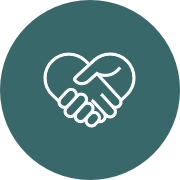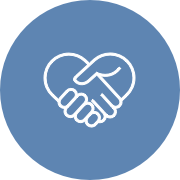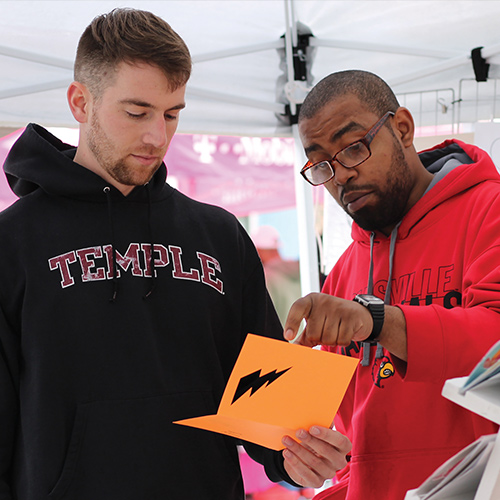
Work that has value
Tyrike always had a way with words. Working with RHD’s IDEATE, an inclusive employment program providing clinically-guided support to individuals with disabilities, he found a way to turn his poetry into a business opportunity. Tyrike is now a poet and entrepreneur, with a line of greeting cards sold at bazaars, festivals and a West Philadelphia boutique.
“Writing poetry makes me see things more clearly. It inspires me and it gives me hope,” Tyrike said.
Tyrike is among the millions of Americans with “barriers to employment,” which refers to any number of disabilities or circumstances that may prevent a person from finding and keeping a job. RHD founded IDEATE in 2014 to help people break those barriers.
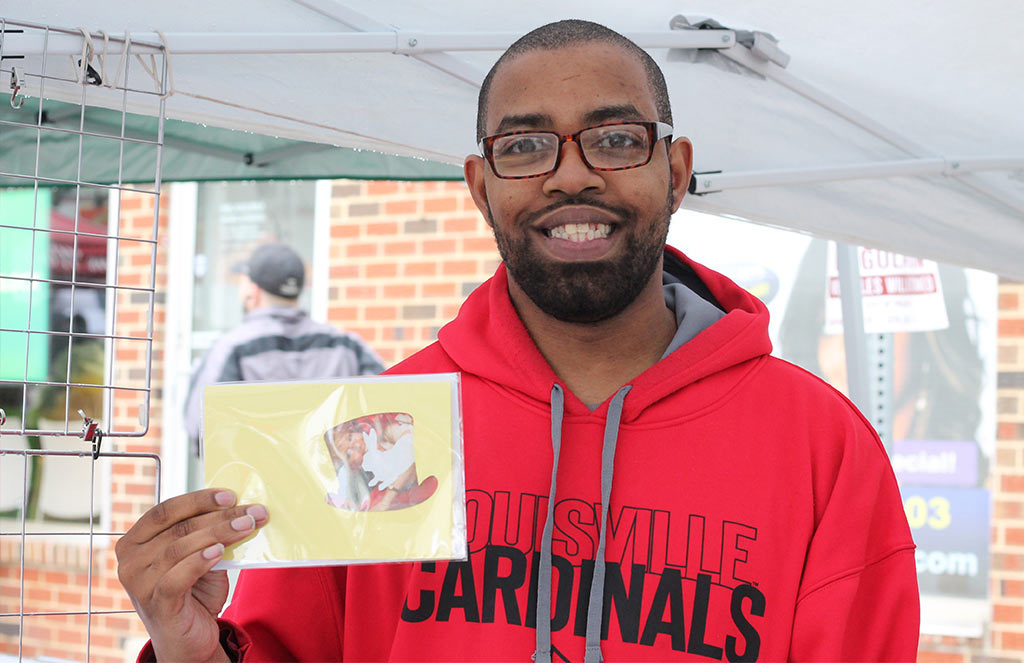
“IDEATE is part of a national movement to put individuals who may have difficulty getting into the labor force, into the labor force,” Director Kaelynne Koval said. “We are STEM (science, technology, engineering, math) oriented, and strive to support participants in obtaining opportunities with those components.
“The men and women in our program are remarkable. They are discovering their passion and the worth work can provide. For many, it’s a new level of validation.”
IDEATE participants receive customized support and direction; 95 percent are people with intellectual disabilities, 80 percent have complex behaviors that require behavioral support plans and/or safety plans, and 40 percent have experienced either arrest, adjudication or frequent police encounters. With support from IDEATE, 82 percent of program participants are earning regular income.
The process begins with a discovery period, during which coaches help clients determine what kind of work they want to do and the areas in which they might excel.
Tyrike’s journey of discovery began with his employment advocate, Liz Cippon, who learned that Tyrike had a love of poetry and writing he’d acquired from his foster mother. Drawing from a poetry class she had taken in college, Cippon suggested that Tyrike try his hand at haiku — a traditional form of Japanese poetry consisting of three short, structured lines. Before long, the two had collaborated on 35 poems.
Cippon and Tyrike brainstormed about how to turn his talent into a creative entrepreneurship, and IDEATE purchased a computerized cutting machine that Tyrike uses to produce greeting cards featuring his poetry and designs. Tyrike now sells his Mad Hatter Cards throughout the Philadelphia region at bazaars, festivals and other events. Hello World, a home decor and gift boutique, sells Tyrike’s cards at their West Philadelphia shop.
“It’s amazing and powerful that people read my greeting cards and it’s emotional for them,” Tyrike said.
“I think Ty went from feeling like he was on the outside a lot to now feeling that there is a connection between him and the rest of the human race because they are able to identify with what he has written,” Cippon said.
Jonathan’s goal at IDEATE was to find a job that he could maintain that would help him live on his own and become financially independent.
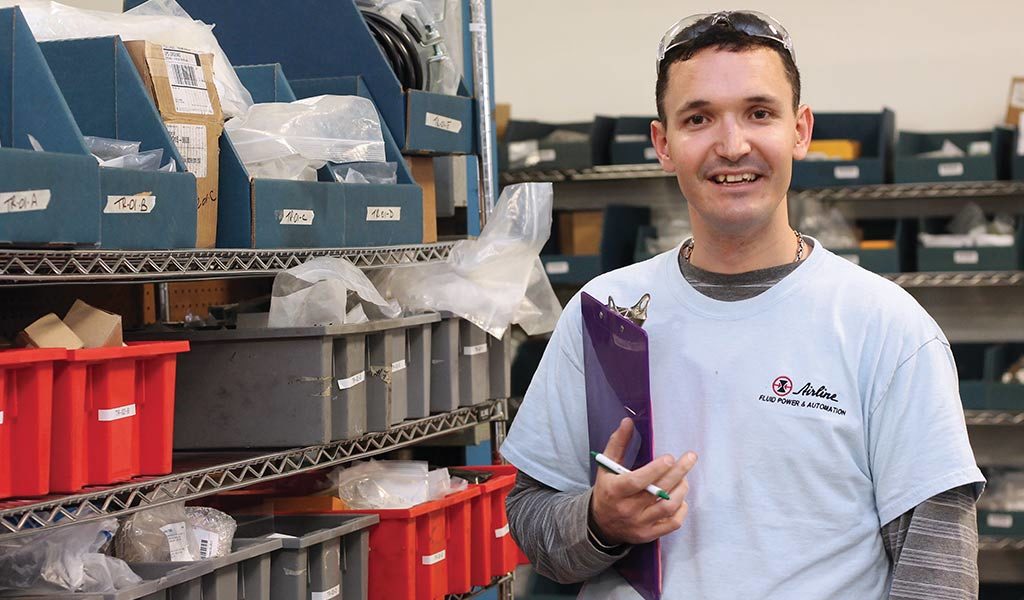
Jonathan has a family friend, Dave Quigley, who is a warehouse manager for Airline Hydraulics, a provider of technology-driven products and services. Quigley had known Jonathan since he was a child. When he heard Jonathan was looking for work, he contacted the HR team at Airline Hydraulics, who worked with IDEATE to provide a job opportunity that would accommodate Jonathan’s special needs.
Under Quigley’s supervision, Jonathan now works in a pre-engineering capacity as an “order puller” — gathering, checking and delivering parts, among other things.
“What Jon brings is determination, and a willingness to learn,” Quigley said. “He shows a lot of heart in this job.”
Jonathan feels right at home at Airline Hydraulics.
“Every day it’s something new,” Jonathan said. “We all help each other, like a team.”
Technology will play a large role in IDEATE’s future plans, Koval said.
“We hope to break barriers by introducing those with an IDD diagnosis into jobs with heavy technology, or like Jonathan, enmeshed in the engineering field,” Koval said. “Starting in July, some of our members will be working virtually. That’s a major breakthrough.”
“So many of the people we support are often told that it can’t be done – and yet we are, we have, and we will.”

